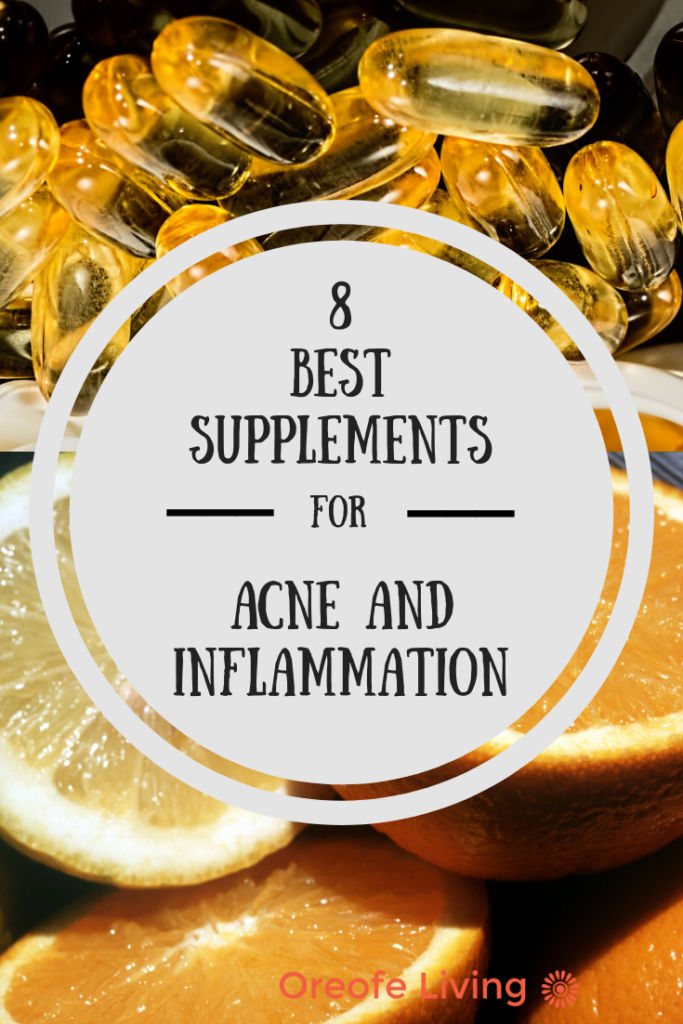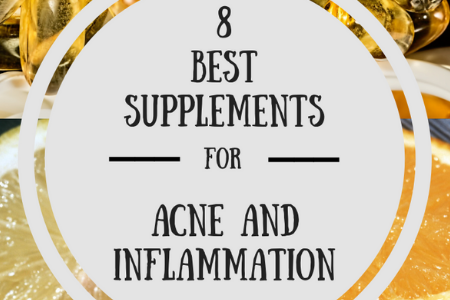The Acne Dilemma
Acne affects both men and women of various age groups. Today, there are 50 million Americans that suffer from this pesky skin condition every year. Many theories circulate the internet regarding the cause of acne. Many experts agree that acne, along with other skin conditions like eczema and psoriasis, is caused by an insufficiency of nutrients in the diet. You can discover the cause of your acne with experimentation and keen observation. Use yourself as a test subject and try different vitamins, minerals, and herbs to find the perfect acne-blasting supplements and diet for you.
If you regularly eat a great diet and practice good skin hygiene with a daily skincare routine, It may be time to acknowledge that imbalanced hormones and imbalanced biochemical processes may be the culprit of your skin issues. Acne is an inflammatory skin condition that must be addressed from within. A healthy plant-based diet will help resolve many imbalances, but using supplements can significantly boost skin healing and recovery – ultimately reducing the appearance of blemishes. Here is a list of eight supplements to balance out hormones and stop acne from presenting itself on your face, chest, back, and shoulders.

Supplements for Acne and Inflammation
1. Magnesium
Magnesium is essential for various biochemical processes in the body. It is the second most common cation (a positive ion) within the cell – number one is potassium. The cells use magnesium for many functions, and according to the National Institute of Health (NIH), the mineral is involved in over 300 enzymatic functions. The recommended daily intake of magnesium is 310 mg for women and 400 mg for men. Most Americans do not get enough. Insufficient magnesium levels can disrupt the mineral balance throughout the body and lead to many diseases.
The nervous, immune, and digestive systems all benefit from healthy levels of magnesium; in fact, they all require it. Chronic stress, anxiety, insomnia, infections, and digestive disorders can all improve with magnesium supplementation. Magnesium helps to reduce inflammation and improve the synthesis of proteins that improve the appearance of the skin.
2. Zinc
Zinc is a very popular supplement for the treatment of acne. Zinc is a mineral that is very similar to magnesium in chemical structure. However, the body does not require as many milligrams of zinc per day as it does magnesium. The daily upward limit of zinc is 40 mg.
Zinc is also essential for many functions throughout the body. Ironically, many individuals with acne have a deficiency of zinc. This trace mineral is important for cell growth and repair as well as collagen synthesis. Taking oral zinc supplements can dramatically improve the condition of the skin. In fact, many people can attest to the efficacy of zinc supplements for acne. Examine your diet and multivitamins to see if you could be deficient in zinc before deciding to take any zinc supplements.
3. Probiotics
Probiotics are living bacteria and yeast that supply digestive benefits when consumed in sufficient doses. The right type of probiotic can provide many advantages, including improved skin health. Many holistic practitioners and natural medicine advocates believe that poor digestive health contributes to the manifestation of disease. If you notice acne flare ups after eating certain foods, perhaps it is time to examine your digestion.
Most of what we consume on a daily basis is through the digestive tract, so any sort of imbalance in this system will bring about imbalances throughout the body. Probiotics and whole natural foods can restore the health of the digestive system, thereby improving the absorption of nutrients and the elimination of toxins. When we can efficiently absorb nutrients and get rid of wastes, we can expect to develop radiant skin.
4. Vitamin C
High levels of vitamin C from the diet or supplements can have a dramatic effect on the skin. Vitamin C, especially in conjunction with bioflavonoids, is known to fight off inflammation and strengthen the immune system. Bioflavonoids are naturally occurring antioxidants that are found in foods that also contain vitamin C. They act as secondary metabolites and boost the effectiveness of vitamin C.
The recommended daily intake of vitamin C for adults is between 65 and 90 milligrams per day. Just one cup of red bell pepper contains 190 milligrams of vitamin C – that’s more than the minimum recommendation. However, vitamin C is water-soluble and whatever the body does not absorb at any particular time is excreted through urine. Therefore it is important to consume vitamin C throughout the day to keep the cells saturated with vitamin C.
Vitamin C influences how well the body metabolizes copper and synthesizes collagen. Copper is a trace mineral that is required for many metabolic processes in the body, including those that influence the condition of the skin. For example, copper aides in the production of collagen, a protein that provides structure and suppleness to the skin. Vitamin C is essential to build and maintain the integrity of the skin.
5. L-Lysine
Lysine is an essential amino acid that is used to synthesize proteins. This amino acid must be obtained from foods and supplements. Natural sources of lysine include: legumes, fruits, vegetables, eggs, fish, poultry, and meat.
Lysine is a nutrient that can help control acne. It is a necessary amino acid for the production of collagen. Sufficient amounts of lysine, together with lots of vitamin C, can produce plenty of collagen that help improve the appearance and quality of the skin.
6. Selenium
Although the body needs this trace mineral only in small amounts, selenium deficiency is common in the United States and affects about 1 billion people across the globe. Selenium deficiency can produce many disorders including: fertility challenges, cancer, hair loss, heart disease and acne. Selenium acts as an antioxidant, balancing free radical formation and protecting the cells from damage. Also, antioxidants like selenium fight against inflammatory responses caused by allergens, toxins, viruses, bacteria, and mold.
7. Omega-3 Fatty Acids
Omega-3 fatty acids are nutrients that help calm inflammation and reduce the chances of developing clogged pores and inflamed follicles. Eicosapentaenoic acid (EPA) and docosahexaenoic acid (DHA) are the more potent fatty acids and work well at healing and regenerating the skin cells. These fatty acids are typically found in oily fish and fish oil supplements. We can find the omega-3 fatty acid alpha-linoleic acid (ALA) in plant sources such as flax, chia, and hemp seeds. Fortunately, for vegans and those who avoid fish in their diets, ALA can convert to EPA and DHA during digestion.
8. Vitamin D3
Vitamin D strengthens the immune system, improves insulin resistance, and fights inflammation. Vitamin D deficiency is prevalent in the United States and it influences the manifestation of conditions such as type 2 diabetes, depression, anxiety, hair loss, fatigue, osteoporosis, and muscle pain. The antioxidant effects of vitamin D can not only improve acne, but also reduce the appearance of fine lines and wrinkles. You can increase the levels of vitamin D in your blood by spending more time outside in the sun, or by consuming vitamin D3 supplements.

